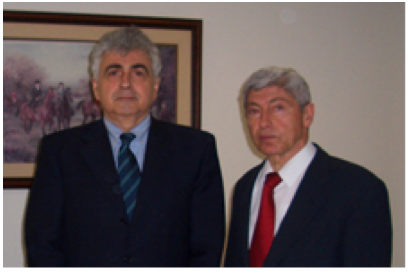Chair: Dr. med. Nadim Sradj, M.A.: Philosopher and Ophthalmologist Vice President, ARABMED, Email: This email address is being protected from spambots. You need JavaScript enabled to view it.
1. H.E. Dr. Nassif Hitti: Ambassador, Head of the League of Arab States Mission and permanent Observer to UNESCO, Paris
2. Andreas Reinmuth, MBA, EMBS, PhD: Management, Cultural Sciences, Natural Healing 3. Günter Schönborn: Business Consultant, Author, Representative of the Macular
Degeneration Association /Germany 4. Dr. Albert Tanios, Ph Médicin, Prof. Agrégé of Psychiatrie, Paris

Revolution can be understood as expressions of crises of conscience. Conscience defines the dynamic relationship of an individual to the world, as a pivotal determiner in time and space. Self- confidence is identical with self- esteem. Thinking, as it takes place in the world, is not the topic. Rather, it is the intention of recognizing the world in which thinking takes place. Our concept of “Global Science.” thus emerged as an aid to orientation in an ever changing world. Present day political philosophy assumes that it is better for theories to die than for people to die.
The price of change does not have to be paid with the shedding of blood. The ‘Peaceful Revolution’ which led to the fall of the Berlin Wall in Germany in 1989 is proof of this. The scientific philosophy of the Vienna Circle provided the intellectual foundation for this in its 1929 manifesto “The Scientific World Conception.” As a general rule, the ruling class tends to ignore the phenomena and signs of a changing Zeitgeist. Logic, however,
teaches the following: small mistakes at the beginning turn into big ones at the end.
***********************************************



